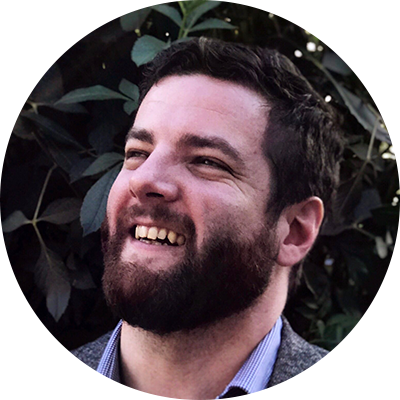Active and Passive Scripture
Any English teacher worth his or her salt can lead students in instruction on active and passive voice and the importance of voice to student writing. Most of the discussion is academic in nature, but attention to this aspect of writing in the Bible can lead to great moral clarity in the life of a reader.
For a primer, active voice refers to writing in which the subject of a sentence actively performs the verb, while passive voice refers to writing in which the verb is passively performed by a subject that may in fact be implied.
Before getting to Paul, we can think about this in terms of good and bad apologies. In good apologies, people say “I am sorry because I hurt you.” In bad apologies, people say “I am sorry because you got hurt.” In the first statement, the person takes responsibility through active voice; they say they hurt you. In the second statement, the person avoids true responsibility; some unnamed person did some unnamed act and the result is your pain.
When it comes to Scripture, we can see the significance of this in Paul’s letter to the Colossians, and indeed throughout the whole of God’s word.
In the second chapter of his letter, Paul outlines the struggles Christians face and the role that community plays in the Christian life. He writes that in community, believers’ “hearts may be encouraged, being knit together in love, to reach all the riches of full assurance of understanding and the knowledge of God’s mystery, which is Christ” (v. 2).
Then, having set forth his arguments about the preeminence of Christ (Col. 1:15-23) and Paul’s place in the church as apostle to the Gentiles (Col. 1:24-2:5), he discusses what it means to be alive in Christ, writing in verses 6-10:
“Therefore, as you received Christ Jesus the Lord, so walk in him, rooted and built up in him and established in the faith, just as you were taught, abounding in thanksgiving. See to it that no one takes you captive by philosophy and empty deceit, according to human tradition, according to the elemental spirits of the world, and not according to Christ. For in him the whole fullness of deity dwells bodily, and you have been filled in him, who is the head of all rule and authority.”
Paul uses active voice and passive voice to divide the responsibilities, and ultimately to assign credit for the outcomes, of the Christian life. Paul instructs Colossians to “walk in [Christ].” That’s their job: read the Scriptures, pray the prayers, build each other up. Credit for the results belongs strictly to the Holy Trinity, as indicated by the passive voice. Let’s see how.
As a result of walking in Christ, the Colossians—and Christians everywhere—will be “rooted and built up and established in the faith” (v. 7). Who does the rooting? And the building up? And the establishing? God the Father, our Lord Jesus Christ, and the Holy Spirit.
It certainly is not Paul’s intention for the Colossians, or other Christians, to root, build up, and establish themselves. Otherwise, he would have written in the active voice and the verse would read something like: “walk in, root yourselves in, build yourselves in, and establish yourselves in faith in Christ.” He continues this in the verses that follow.
We are as responsible for doing the walking as we are for making sure that “no one takes [us] captive” with worldly philosophy. As a result of protecting ourselves, we “are filled in him, who is the head of all rule and authority” (v. 10). Who does the filling? According to Paul, it still is not us. Paul does not say “protect yourselves and fill yourselves with Christ.” But, as we walk and as we see to it that no one leads us astray, God does the filling.
As long as we seek to center our lives in Gospel-teaching, Bible-reading communities and to protect ourselves from the falsehoods of man’s knowledge or Satan’s lies, God will establish our roots, build us up in Christ, and make us “alive together with him, having forgiven us all our trespasses” (v. 13).
So, as we dutifully seek such community and protection, may we pray that God grants us the strength to continue in that search, and thank Him for what He accomplished on the cross and continues to accomplish in our lives.
Adam Johnson
Adam is a high school English teacher in Gainesville, GA. He holds a Master’s in Secondary English Education and has taught for 11 years. Adam and his wife, Laura Sue, are Georgia natives living in Gainesville with their daughter, Imogen.


